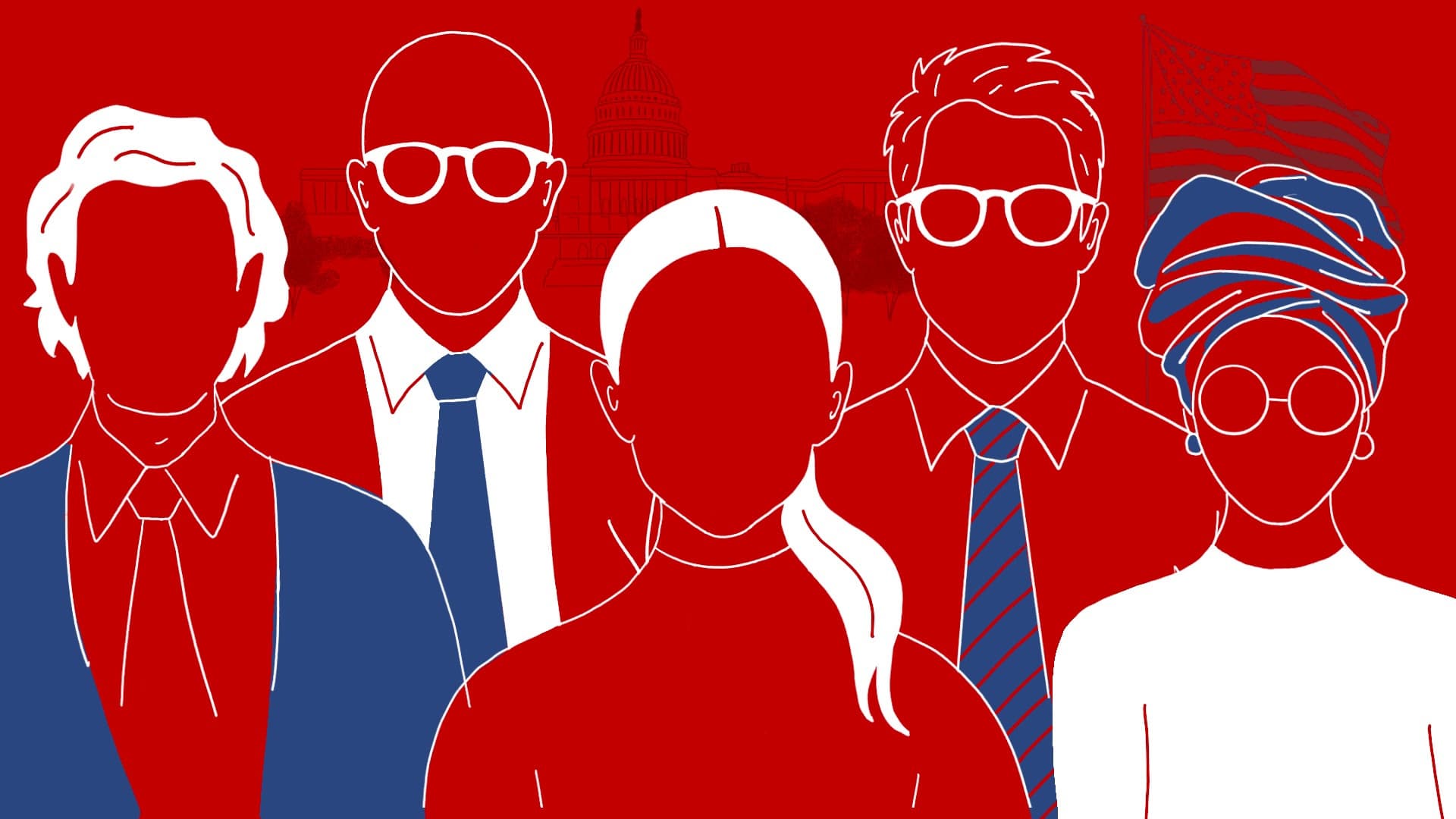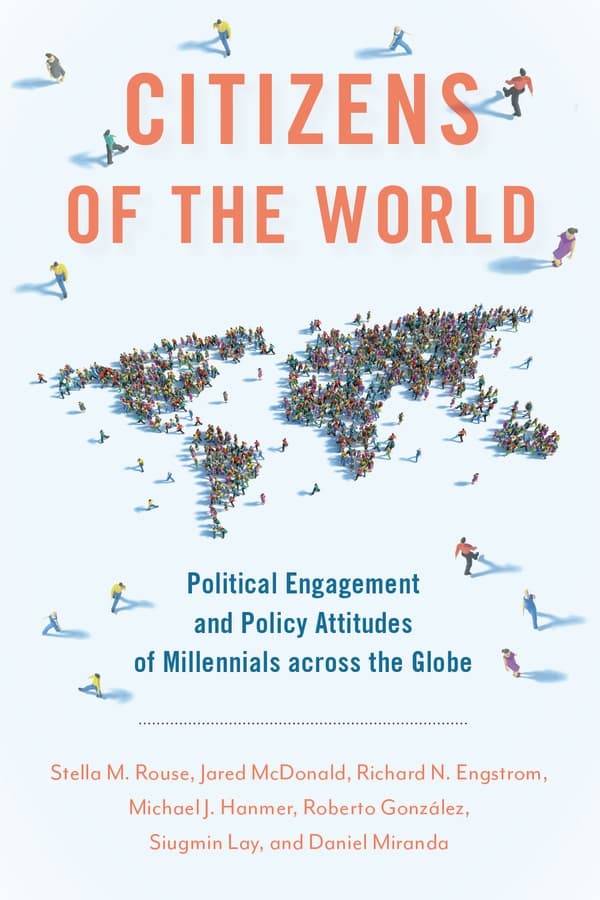Accepting the Political Torch
Millennials Prefer Protests to Voting, Engage More in Local Politics, UMD Researchers’ Book Reveals

A new book by UMD professors and a Ph.D. alum offers insight into how Millennials around the world view and engage with politics, including how they prefer to participate, their global perspectives and the diverse backgrounds they'll bring into government.
Illustration by Valerie Morgan
Millennials aren’t the avocado toast-eating, participation trophy-hogging kids caricatured in the media anymore—they’re on the cusp of wielding major power as political, economic and social leaders around the world.
What does that mean for upcoming elections and campaigns, as society confronts global challenges like human rights abuses, pandemics and climate change?

A new book that includes three University of Maryland researchers and a UMD alum as co-authors provides some insight. “Citizens of the World: Political Engagement and Policy Attitudes of Millennials Across the Globe,” published today by Oxford University Press, examines attitudes and behaviors of millennials, who at 1.8 billion people are now the world’s largest cohort, making up a quarter of the population.
“I’m very interested in how younger generations participate in politics,” said lead author Stella Rouse, professor of government and politics (GVPT). Millennials, born between 1981 and 1996, have certain common ways of viewing the world, thanks to the increasing dominance of the internet during their formative years. “More than older adults, they embrace this global identity, this idea of being a ‘citizen of the world.’”
Rouse and fellow GVPT professors Mike Hanmer and Rich Engstrom conducted the Global Millennial Survey in partnership with Universitas 21 colleagues in eight countries: Australia, Chile, Mexico, New Zealand, South Africa, South Korea, the United Kingdom and the United States. They gathered data from about 600 respondents in each location, half millennials and half older adults, on how they identify themselves, their news consumption habits, their preferred modes of political participation and their interest in public service. The authors share five key takeaways from the book.
Millennials Don’t Like Voting
“We can’t make light of this finding that voting isn’t seen as the vehicle” for political engagement by this generation, said Hanmer. The survey found that millennial voter turnout is lower across the board—up to 20% less than non-millennials.
“The way business is done now, politicians pay attention mostly to the people who vote. But as they begin to confront this fact, some things will start to change,” Hanmer said. That may mean transforming campaigns to reach millennials online—50% named the internet as their top choice for political information compared to 34% of older respondents in the U.S.—just as new media technology led candidates to change tactics from whistlestops to televised debates.
Millennials Want Active Participation
“They prefer social movements, protests, marches—things that are immediate and that can lead to change more quickly,” said Rouse. “There are a lot of benefits and success in the ways that they like to engage.”
She points to the current nationwide protests in Iran, a theocratic state that holds only nominal elections, as well as the protests in the United States following George Floyd’s killing in 2020, which led to “a sea change in attitudes on race in this country,” she said. “But making that stick requires putting people in office who will enact changes in policy.”
Given the historic increase in voter turnout for the 2018 and 2020 U.S. elections, Rouse predicts that millennials will show up for upcoming midterms, recognizing as they get older that “duty-based” actions like voting have to go hand-in-hand with more active political participation.
Millennials Think More Globally
Growing up in the shadow of the Sept. 11 attacks during the rise of global terrorism, as well as being the first generation to widely use the internet as children, millennials forged a new kind of connection with their peers around the world. “They came of age and into the workforce during the Great Recession, and then at the height of their earning potential, COVID hit. These things didn’t have borders,” Rouse said. Their more universalistic view, rather than a nationalistic approach, could help millennial leaders find common ground as they work on issues like climate change.
Millennials Are Ready to Serve in Government
“One of the concerns of a lot of people involved in governance is that there isn’t a pipeline of leaders for the future,” said Engstrom. “But finding that millennials are just as interested as older generations is a relief.”
In six out of eight countries, including the United States, they report being more interested in engaging in local political activities—a typical stepping stone to higher levels of government service—than non-millennials. However, the authors recommend future studies to see how millennial lifestyle differences, such as moving more often and buying homes later, could impact their trajectories in public service.
Millennial Leaders Could Look Different
“In the old system, becoming a political leader means becoming an attorney, and that greases the wheels,” said Engstrom. But when millennials come to power, they’re likely to be more diverse in a variety of ways, including race, gender and career. “Maybe it will be more important to have a background as a nonprofit leader that inspires young people to take action.”